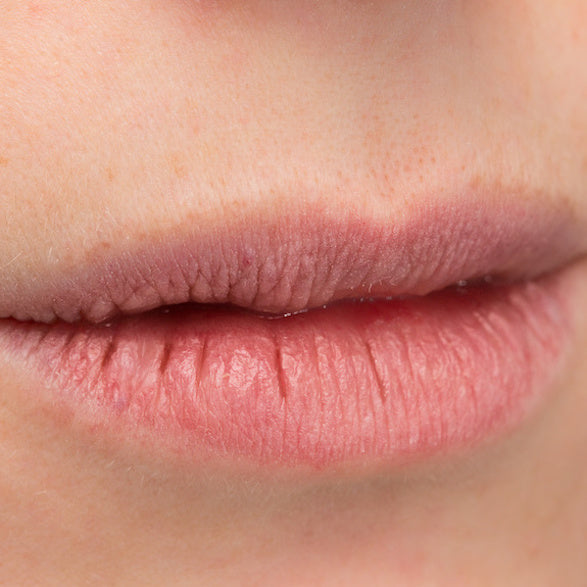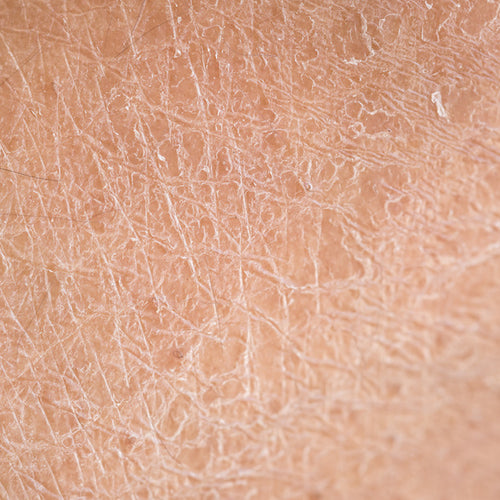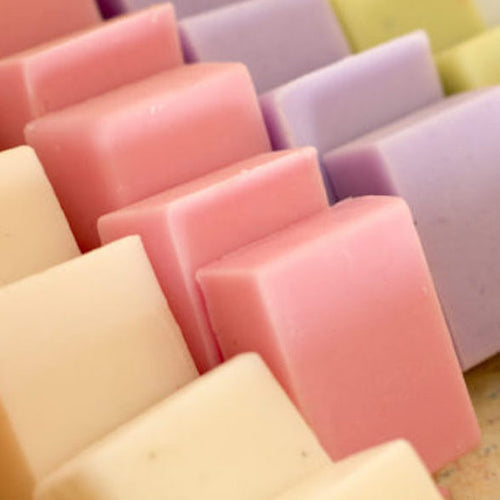
How to Treat & Prevent Chapped Lips
Dr. Pimple Popper shares her tips and tricks for keeping lips soft and smooth in every season.Published:
5 minute read
Whether it’s flaking, peeling, cracking, or splitting, chances are, you’ve had a bout with chapped lips: This super common skin concern can strike during any season — and sometimes, isn’t weather related at all. With the help of dermatologist and SLMD Skincare founder Sandra Lee, MD (aka Dr. Pimple Popper), we’re exploring the causes, effective remedies, and prevention strategies to keep your lips soft and healthy all year round.
Article Quick Links
What causes chapped lips?
If it seems like your lips get chapped before you’ve even noticed the rest of your skin feels dry, it’s not your imagination. Dr. Lee says that lips are particularly prone to drying out, for a couple of reasons:
- Anatomy: The skin on your lips is thinner, contains less keratin, and lacks sebaceous glands, which means they don’t make their own protective oil.
- Function: Because your lips are in virtually constant motion, and come into contact with so many different substances, the skin is more susceptible to moisture loss.
Run-of-the-mill chapped lips (aka cheilitis simplex) can strike for several reasons, and in any type of weather — though the condition is more prevalent when it’s cold. Here are the most common culprits:
- Environmental factors: Cold, wind, and even too much sun can take a toll on your lips, robbing them of moisture.
- Dehydration: If you’re not drinking enough water, your lips might be the first to show signs.
- Habitual lip licking: This quick fix for dry lips might make things worse in the long run.
- Irritating ingredients: Sometimes, lip products, cosmetics, even foods might not be compatible with your skin.
What’s the best way to treat chapped lips?
According to Dr. Lee, effective treatment of chapped lips involves a multi-faceted approach that hydrates, repairs, and protects. Here's a detailed strategy:
- Humectants: Ingredients like hyaluronic acid and glycerin work by attracting water to the lips, providing deep hydration.
- Emollients: These are key in softening and smoothing the lips. Ingredients like shea butter, squalane, and jojoba oil nourish and repair the skin barrier, improving the texture of the lips.
- Occlusives: After hydrating and nourishing with emollients, occlusives like beeswax or petroleum jelly are essential. They seal in moisture and protect the lips from external elements.
- Stay hydrated: Drinking ample water is crucial for overall hydration, which benefits your lips.
- Exfoliate: as long as your skin isn’t broken, gentle exfoliation with a soft brush or sugar scrub can remove dead skin, allowing better absorption of lip care products.
Pro tip: Dr. Lee’s go-to remedy is SLMD Hyaluronic Acid Serum, which also contains squalane, followed by a layer of Aquaphor.
How do you prevent chapped lips?
Prevention is the best approach when it comes to chapped lips. By taking a few proactive steps, you can keep your lips smooth and hydrated:
- Use SPF lip products: Protecting lips from UV rays is crucial, as sun exposure can lead to dryness and damage.
- Apply balm regularly: Use a nourishing lip balm consistently, especially those rich in emollients, can maintain lip health and prevent dryness.
- Avoid irritants: Choosing products without potential allergens and irritants, like synthetic fragrances or certain chemicals, can help prevent lip sensitivity.
- Use a humidifier: Adding moisture to the air will benefit your dry skin.
- Drink enough water: Helps keep your skin healthy from the inside out.
- Balanced diet: A diet rich in vitamins and minerals supports overall skin health.
Can you be addicted to lip balm?
This is one of those skincare myths that’s been around forever — and the answer’s not exactly straightforward. While not a physical addiction, relying heavily on lip balm can become a habitual cycle that feels hard to break. This habit often intertwines with the temporary relief that lip balm provides and may be exacerbated by behaviors like licking your lips, notes Dr. Lee. Here's a closer look at the dynamics:
- Active ingredients: Some lip balms contain ingredients like menthol or camphor, which feel soothing but can actually lead to drier lips over time.
- Lip licking: Applying lip balm can sometimes increase the tendency to lick your lips, which can strip away the protective layer.
- Disrupting balance: Overusing certain types of lip balms might disrupt your lips' natural ability to maintain their own moisture.
- Habit formation: The routine of applying lip balm can become a comforting ritual, leading to a perceived need for constant application.
To break this cycle, opt for nourishing lip balms that hydrate without drying ingredients. Also, be conscious of lip-licking habits, especially after applying balm, as this can exacerbate dryness.
What if my chapped lips won’t heal?
If you're still experiencing dry and chapped lips despite following these guidelines, it might be time to explore other underlying causes or sensitivities. In some cases, persistent chapped lips might be more than just a surface issue, such as:
- Actinic cheilitis: Occurs when long-term sun exposure causes persistent dryness and scaling, potentially leading to precancerous changes, primarily in the the lower lip.
- Angular cheilitis: Characterized by inflammation, redness, and soreness at the corners of the mouth, often due to nutritional deficiencies or fungal or bacterial infections.
- Contact cheilitis: A form of contact dermatitis, caused by substances in lip products, dental materials, or food, leading to redness and irritation.
- Allergic cheilitis: Similar to contact cheilitis, arises from an allergic response to ingredients in lip care or dental hygiene products, characterized by itching, redness, and swelling of the lips.
- Exfoliative cheilitis: A rare condition where the skin on the lips continuously peels off, leaving raw, sensitive areas, which could be related to chronic lip licking, stress, or an underlying psychiatric condition.
- Nutritional deficiencies: Persistent chapped lips, especially in combination with other symptoms, can indicate deficiencies in essential nutrients, such as B vitamins, iron, and zinc.
- Medical conditions: Chronic chapped lips can be a symptom of underlying health issues, including autoimmune diseases like Sjögren's syndrome, thyroid disorders, or diabetes.
If your chapped lips aren’t responding to conventional treatment, Dr. Lee suggests consulting a dermatologist to help you get to the root of the problem.

Dr. Lee's Last Word
Chapped lips are incredibly common, but fairly easy to treat with the right skincare. Show your lips some TLC because the skin there is delicate — and don’t forget to protect them with sunscreen!





